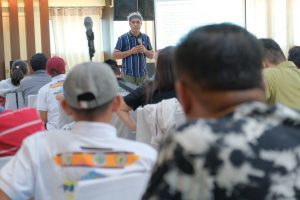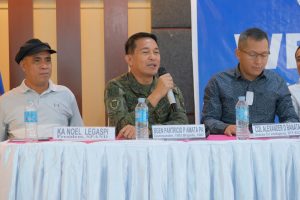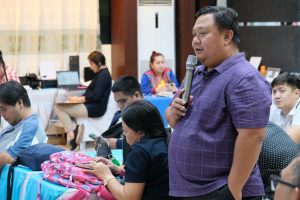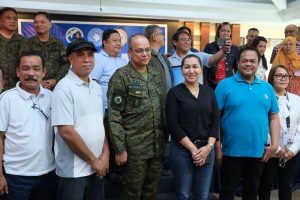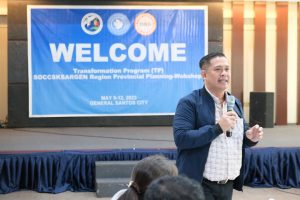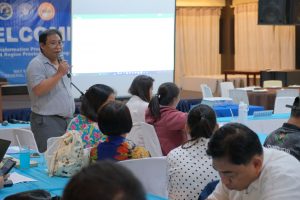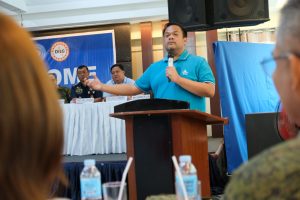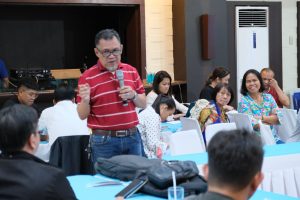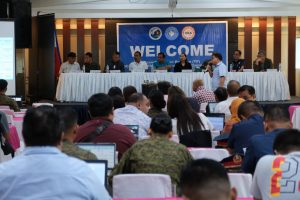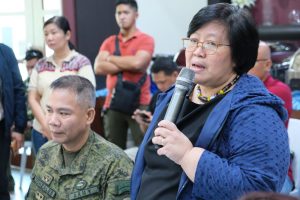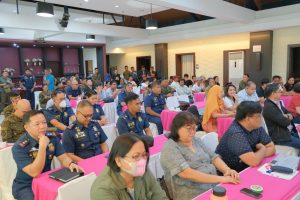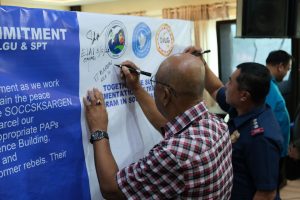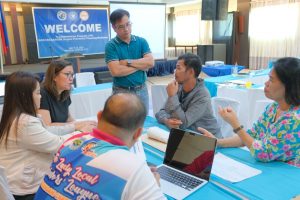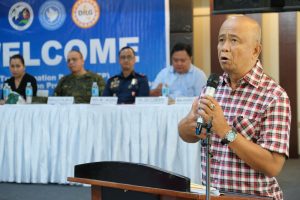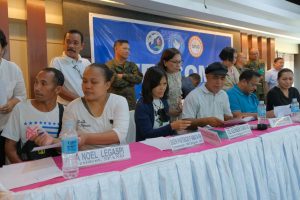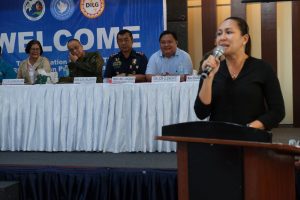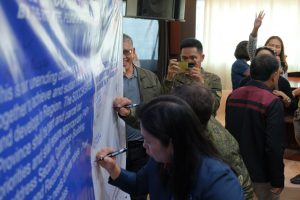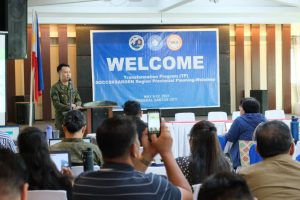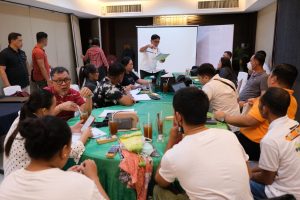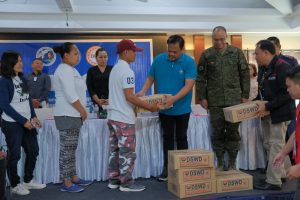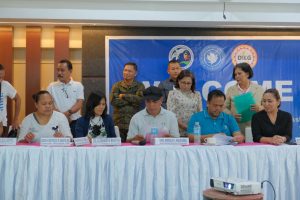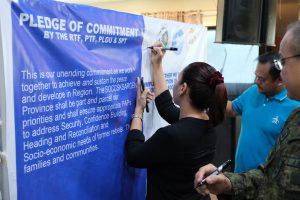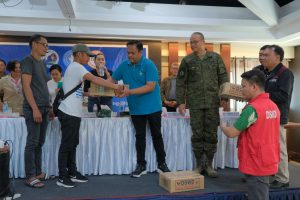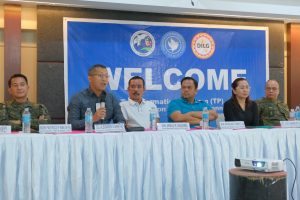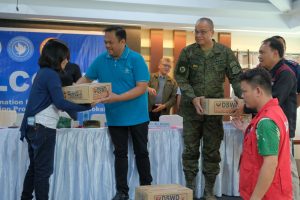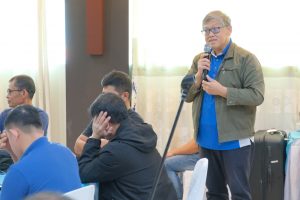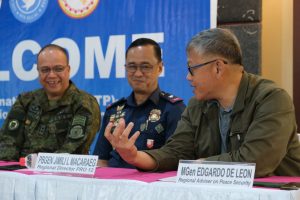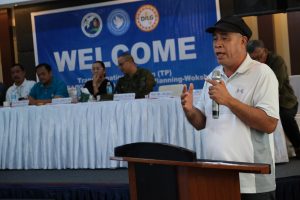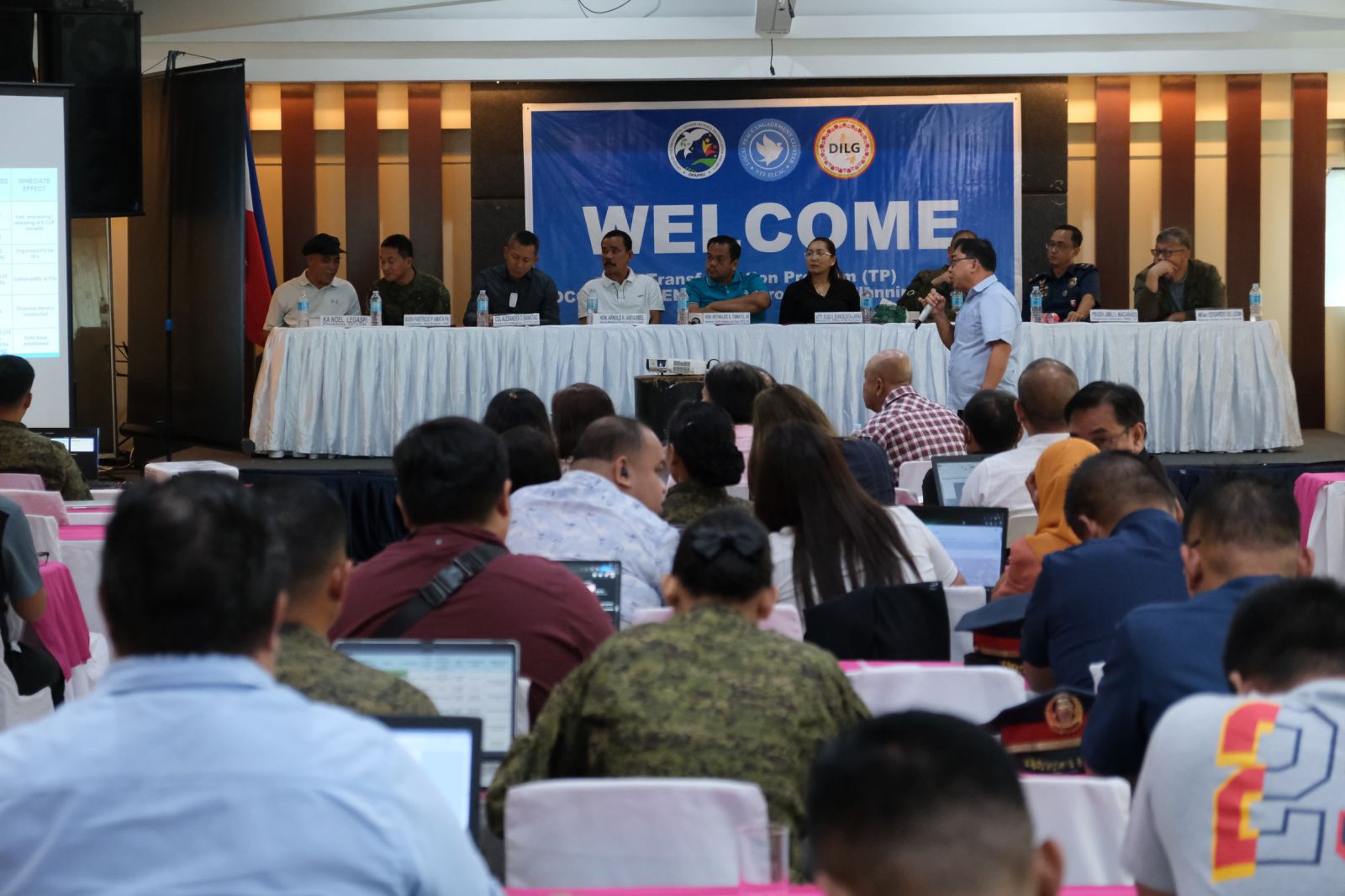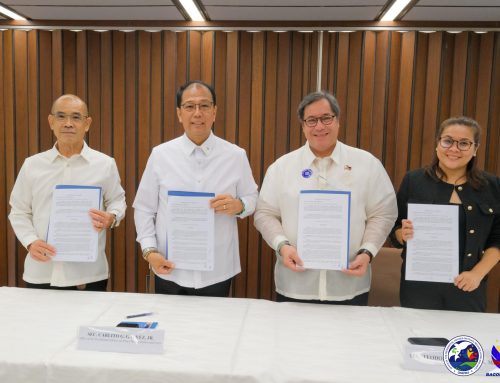GENERAL SANTOS CITY – At first glance, Noel Legaspi looks like a popular anime character with his brightly dyed, brushed up hair and colorful headband.
Make no mistake, however, Legaspi, 52, was once a top-ranking cadre of the Communist Party of the Philippines-New People’s Army (CPP-NPA) who gained notoriety because of his innate ability to bring recruits into the group’s fold.
But since he voluntarily left the Maoist organization and returned to the folds of the law in 2018, he has channeled his energies in helping former rebels (FRs) like him as they make the delicate transition into mainstream society.
From guerilla fighter to peace advocate
Legaspi now heads the SOCSKARGEN Peace Advocates for Nation-Building and Development or SPAND, a regional federation of provincial, municipal and barangay FR and people’s organizations.
According to the ex-guerilla turned peace advocate, SPAND was formally created on the eve of the Transformation Program Planning Workshop organized by the Office of the Presidential Adviser on Peace, Reconciliation and Unity (OPAPRU).
The OPAPRU is the co-lead agency of the National Task Force to End Local Communist Armed Conflict’s (NTF-ELCAC) Local Peace Engagement Cluster (LPE), together with the Department of the Interior and Local Government (DILG).
The three-day planning workshop, held from May 10 to 12, aimed to help provincial government units in the South Cotabato-Sultan Kudarat-Saranggani-General Santos (SOCSKSARGEN) Region to formulate their respective plans in implementing the Transformation Program.
“Napakaganda ng Transformation Program. At least, malinaw ang track na sinusundan natin in transforming FRs from a violent mindset papunta doon sa peace-loving individual sila,” said Legaspi who was tapped as a resource person during the three-day workshop.
“Isang bagay na nakita ko is the sincerity of this program. Ang nakikita ko ‘yung follow through, ‘yung direction niya. So medyo strategic ‘yung kanyang tingin sa problema natin sa FRs. Gusto talaga niya i-transform ang isang individual,” he added.
Legaspi said that the Transformation Program, which was crafted by the LPE Cluster to address the transformational needs of FRs, their families and communities, was a major factor in their decision to establish SPAND.
Addressing implementation gaps
Atty. Elisa Evangelista-Lapiña, OPAPRU director for Eastern Mindanao, noted during the workshop that the national government already has a lot of programs and projects on the ground, which just need greater integration and complementation.
“On the part of the government, we really want to bridge that gap on the ground and the national government,” Lapiña said, explaining that the Transformation Program’s multi-stakeholder approach can help address this concern.
A key element that will make the program succeed, she said, is the strong partnership between local government units, different line agencies, and the media who are “the frontliners, the pulse of our communities.”
“The TP is not a mere program, but a transformative initiative. It does not seek to plaster over the symptoms of conflict but to address its root causes [through] dialogue, understanding, reconciliation,” Lapiña stressed.
Ian John Clemente, regional ELCAC focal person of DILG XII, pointed out that the major challenge facing the Transformation Program is the level of commitment of stakeholders, particularly LGUs at the municipal and barangay level.
This is the reason, Clemente said, why the conduct of the Retooled Community Support Program (RCSP) is critical, as it will help create greater synergy between LGUs and national line agencies in terms of project implementation.
“What we have seen is the buy-in of our municipal [ELCAC] task forces. The convergence of programs and projects of national government agencies is present. We are waiting for the results of your partnership with the barangay,” Clemente said.
Ramped up IEC campaign
Eduardo Marquez, regional director of National Intelligence Coordinating Agency (NICA) Regional Office 12, underscored the need to intensify the national government’s information, education communications (IEC) campaign against the communist terrorist group.
Marquez observed that “we might be winning the battle but not war,” as he cited the importance of effectively communicating the government’s peace and development agenda, especially for FRs operating in the hinterlands and countryside.
“Kailangan ipaalam po natin ito. Kailangan makaabot sa bukid. Bakit? Para malaman ng mga kapatid natin sa bundok na may ginagagwa ang gobyerno para doon sa mga bumalik na, ‘yung ayaw nang mag-rebelde,” he said.
Col. Alexander Banatao, director for intelligence of NTF-ELCAC, echoed Marquez’ recommendation on the need to further strengthen the national government’s IEC campaign against the communist insurgents.
“Ang isang recommendation ko is to link ‘yung strategic communication sa ibaba with the national. We have a weekly TAG Reloaded [press conference]. Every day, we come up with a message,” Banatao said.
The NTF-ELCAC, he said, commends the OPAPRU’s efforts in coming up with the Transformation Program that is very comprehensive and seeks to address the roots of the decades-long armed rebellion.
Greater inclusivity
BGen Patricio Amata, commander of the of the 1002ND Brigade, 10ID, observed that although the government’s peacebuilding initiatives are “very substantive and easily implementable,” they may be too “FR-centric.”
“Most of the programs are targeting the FRs and their families. Palawakin natin ang pagiging inclusive in such a way na dapat kasama ang buong community doon sa conflict-affected areas,” Amata said.
“Na le-left out natin ‘yung mga hindi miyembro ng CTG. Dapat isama natin sila sa ating mga programa. Dapat inclusive. Sila na naman ang magiging vulnerable na i-eexploit ng kabila dahil napabayaan natin sila. We should not forget them,” he added.
South Cotabato Gov. Reynaldo Tamayo emphasized the need to set aside personal interests and put an end to the “culture of dole-outs,” as they will help ensure the sustainability of the government’s peace and development agenda.
“Tigilan na ang dole outs,” Tamayo said, adding in the vernacular that everyone should work together to fulfil the promise of President Ferdinand Marcos Jr. to end the communist insurgency and reduce the country’s poverty rate to eight percent.
“Magtulungan tayo. If we eradicate poverty, na-transform ang FRs, naipasok ang development, natulungan ang mass base [at] lahat ng sector na naka-attach sa poverty. Kailangan magkaisa tayo,” he added.
During the workshop, Legaspi and other FRs from SOCSKARGEN signed a Memorandum of Agreement wherein they vowed to support the national government’s peacekeeping and peacebuilding efforts in the region.
The FRs and other participants of the workshop, which included representatives from line agencies, LGUs and the security sector also signed a pledge of commitment to express their support to the national government’s peace agenda.
A reliable partner of government
For Legaspi, it is his hope that the government will favorably consider some of the recommendations made by their newly-created organization, which includes the granting of amnesty to FRs.
“Habang ang FR may mga pending cases, ‘yung kanyang reintegration sa community, napipigilan ‘yan. Kasi natatakot siya na ‘pag bumalik siya doon, aarestuhin siya [because of criminal cases],” he said.
Legaspi said the group is also requesting the national government to fast track the provision of socio-economic assistance under the E-CLIP Program, which he lamented has not reached some of the beneficiaries.
Moving forward, he said that the SPAND is focused on carrying out its vision of becoming a reliable partner of government in the implementation of peacebuilding and development programs and projects in the region.
And his message to his former comrades: “Panawagan ko sa inyo, tama na. Ngayon na ang panahon na bumaba kayo. At once and for all, magkaroon tayo ng tunay na kapayapaan sa ating bansa, sa inyong mga sarili, at sa mga pamilya ninyo.”
